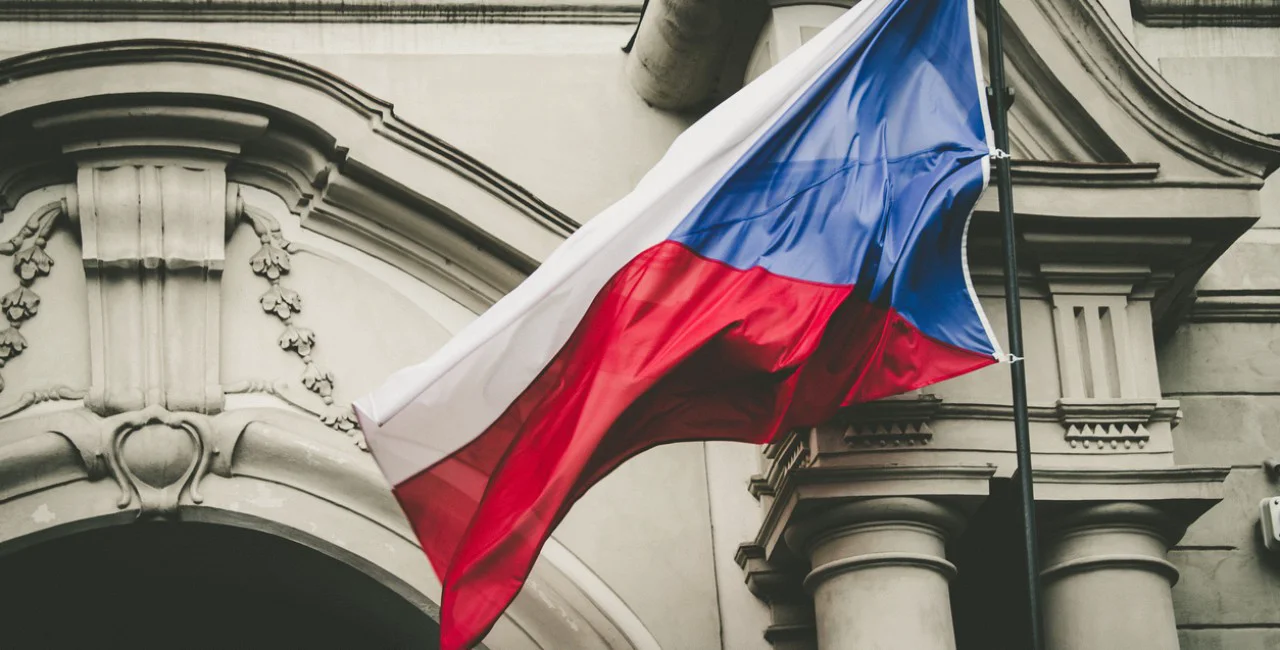Czech schools will be still obliged to hoist the national flag on national holidays and other important occasions during the summer break. The Chamber of Deputies, the lower house of Parliament, did not remove the obligation from a government amendment to the law on national symbols that would have canceled this duty.
The far-right Freedom and Direct Democracy (SPD) party had urged the continuation of the obligation.
The amendment to the law on national symbols, with the obligation intact, will be forwarded to the Senate. The proposal contains a clearer definition of the official stamp and introduces changes to the seal with the small Czech coat of arms.
The government suggested ending the obligation to hoist the flag in July and in August, as it creates an unnecessary burden on schools. It can also put the flag at risk of damage. Many people take long weekends at the start of July to take advantage of the holidays, so very few people would even see if the flag was flying at their local school. Someone would also be forced o work on the holidays to put the flag up.
Over the summer, there are two back-to-back national holidays: Cyril and Methodius Day on July 5 and the Burning at Stake of Jan Hus on July 6. The government can also declare an occasion of national significance.
SPD deputies in the lower house pointed out that the flag is a symbol of state and national sovereignty and independence.
“Regardless of the time and season, the display of the national flag is part of the expression of national pride, which should be encouraged by law and not discounted," the SPD said.
Many schools, though, carry out renovations in summer. Under these circumstances, the rules of appropriate and respectable use of state symbols recommend not hoisting the flag, according to the cabinet.
Should schools have to display flags on state holidays in the summer?
Ivo Pojezný (KSČM), the rapporteur responsible for handling the amendment, said that the next government should amend the law to stipulate that schools are not obliged to fly the flag if there is a risk of damage to it.
The lower house approved a suggestion from Interior Minister Interior Minister Jan Hamáček (Social Democrats, CSSD) to allow volunteer and company firefighters to use the large state coat of arms on their uniforms. Rescue workers may enjoy the same privilege, as the lower house also approved a proposal by Milan Brázdil (ANO).
The current law on flags and emblems dates to 1990. It specifies when the Czech flag should be displayed and who has the right to use it and other state symbols and emblems. The law states that the national flag of the Czech Republic shall be flown on national holidays and other festive occasions on buildings housing the organs and organizations of most parts of the national and local government.

It can also be flown by “in an appropriate and dignified manner” by individual citizens, political parties, and civic associations.
When other flags are also displayed, the national flag of the Czech Republic should be displayed at the most prominent place of honor, the law stipulates.
The Czech flag is defined as having a lower red field and an equal-size upper white field with a blue wedge situated between the two from the flagpole toward the middle of the flag; the flag’s width-to-length ratio is set at two-to-three, and the length of the wedge is equal to half the whole flag length.
It is not legal for example, to add a company or organization logo to the Czech flag, and on occasion there has been legal action to stop the use of a modified Czech flag.
The flag designed by Jaroslav Kursa was first used from 1920 till 1939, and then again from 1945 onward. Between 1918, when Czechoslovakia first became established, and 1920, the flag lacked the blue wedge, which was added to differentiate it from the flag of Poland.












 Reading time: 3 minutes
Reading time: 3 minutes 




























